
A declaration to establish the WIO Mangrove Network was made on 5th October 2011 in Mombasa, Kenya by a group of regional mangrove experts, having recognized the important role that mangroves play by providing many critical ecosystem goods and services to millions of people in the region; appreciated that these ecosystems face a myriad of similar management challenges across the region ranging from overexploitation, conversion, pollution and more recently climate change related impacts; acknowledged that there is currently no forum which brings together regional mangrove scientists, managers and policy makers.
Securing the mangrove ecosystems of the Western Indian Ocean region through creation and application of best practices for sustainable conservation and management
To identify new and emergent fields of scientific and practice research in the conservation, including sustainable utilization of mangrove resources, assist in the making of informed policy and management decisions, stimulating high quality science, and lead collaborations at national, regional and international scientific research and conservation programmes.
We strive to respect differences of our people, communities, cultures and traditions.
We recognize the importance of mangrove ecosystem as pivotal in supporting human nature systems.
We aim to apply the best available scientific knowledge and practices to craft innovative solution to complex mangrove conservation and management challenges.
We target the highest ethical and professional standards in all of our endeavors.
We recognize political, environmental, economic and social diversity.
“Our devoted team is guided by the Network’s mission in implementing the 2023-2027 strategic plan”
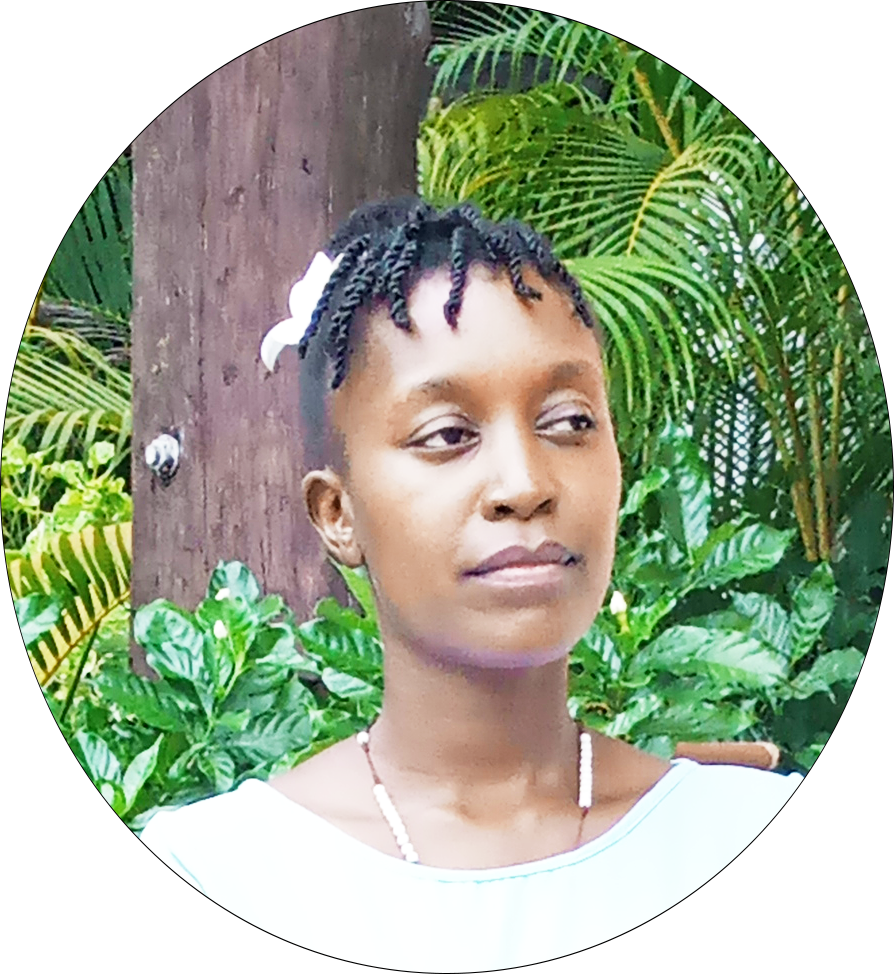
Member
Kenya
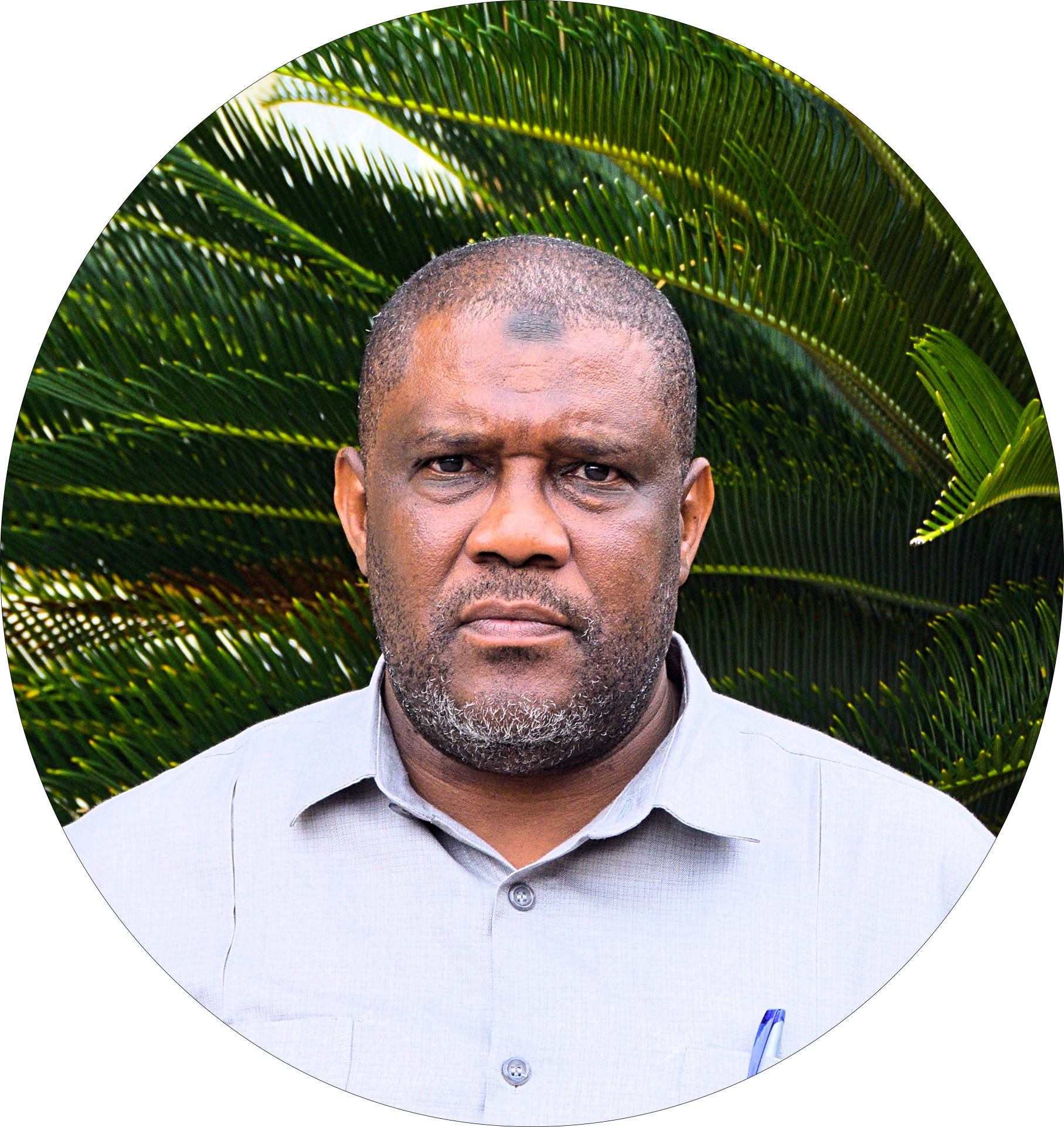
Member
Zanzibar

Member
Portugal
“Our devoted team is guided by the Network’s mission in implementing the 2023-2027 strategic plan”
“Our devoted team is guided by the Network’s mission in implementing the 2023-2027 strategic plan”

Tanzania (Zanzibar) Representative
“Our devoted team is guided by the Network’s mission in implementing the 2023-2027 strategic plan”
The Network envisions securing the mangrove ecosystems of the Western Indian Ocean (WIO) region through creating and applying best practices for sustainable conservation and management. To achieve this, WIOMN’s mission is to identify new and emergent fields of scientific and practice research in conservation, including sustainable utilization of mangrove resources, assist in the making of informed policy and management decisions, stimulate high-quality science, and lead collaborations at national, regional, and international scientific research and conservation programs. It is against this background that, with the support of SOMN, WIOMN has developed this first Five-Year Strategic Plan (SP) for 2023–2027, the first since its establishment, to confirm its vision, mission, and objectives and to establish a design process and approach for the effective implementation and sustainability of its mandate.
The Network is an autonomous body having perpetual succession and a legal existence independent of its members. The Network may allow the establishment of national chapters or affiliations to facilitate the activities of WIOMN at the national level.
Copyright © 2023 WIOMN, All Rights Reserved
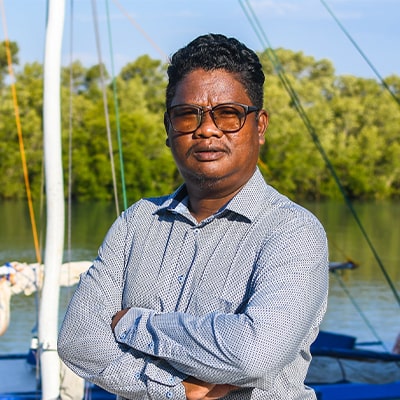
Regional Chairperson
Dannick Randriamanantena is an oceanographer by training (MSc) specialized in the sustainable management of marine biodiversity and the creation of a marine protected area at the Institut Halieutique et des Sciences Marines of the University of Tuléar (Madagascar), and is also graduated in Land Use Planning (MSc) at the Polytechnic School of the University of Antananarivo (Madagascar). He started working for WWF Madagascar in 2008 as Toliary Reef Complex and Marine Protected Area Project Officer and then in 2011 as West Coast Mangroves Project Manager. From 2014, he held the position of Landscape Manager for the Manambolo Tsiribihina landscape. He is one of the recognized specialists in the field of sustainable management of mangroves in Madagascar and he is sought after for his expertise in this field at national, regional and global levels. He currently chairs the Western Indian Ocean Mangroves Network (WIOMN).
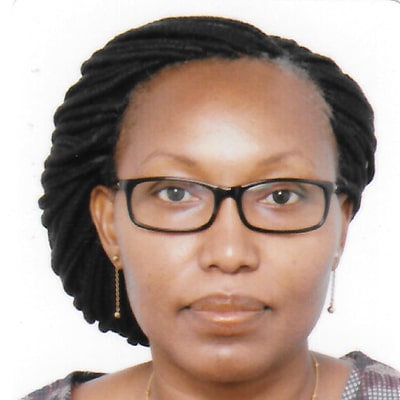
Member
Dr. Immaculate Sware Semesi is skilled with 15+ years’ experience in research, and management of natural resources for sustainable development, with a solid experience in managing different levels of projects, budgeting process, monitoring & evaluation, and administration. Dr. Semesi was previously a Lecturer and Researcher with the University of Dar es Salaam, School of Aquatic Sciences and Fisheries. Currently Dr. Semesi is working as Director General at National Environmental Management Council of Tanzania (NEMC) Prior to this appointment, Dr. Semesi worked as Manager for Tanzania’s Marine Parks and Reserves Unit, and formerly with Tanzania’s National Environment Management Council as Principle Environmental Management Officer, a platform that enhances putting into action the national environmental act (2004) and its regulations, as a tool to address key national environmental challenges, including climate change. Further, working as a parliamentarian for 5 years has given Dr. Semesi exposure into the political realm, lobbying and negotiation skills, as well as formulation of policies, law making and national programmes, and national budget scrutiny.
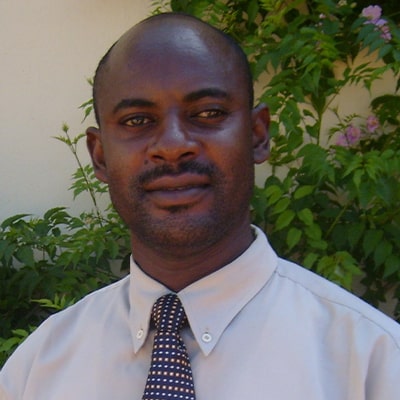
Regional Secretary
Dr. Mwita Marwa Mangora is a Senior Lecturer at the Institute of Marine Sciences of the University of Dar es Salaam based in Zanzibar Tanzania where he teaches and researches on Applied Coastal and Marine Ecology, Conservation Science; Sustainable Utilization of Coastal and Marine Resources and Climate Change. His current research focus is on mangrove ecology and management, their transformations from both natural and anthropogenic pressures, dynamics of mangrove ecosystem services and livelihoods of dependent communities, restoration and management. He is a member of the IUCN Mangrove Specialist Group. Dr. Mangora holds a BSc in Forestry, MSc in Natural Resources Management for Sustainable Agriculture and a PhD in Marine Sciences.
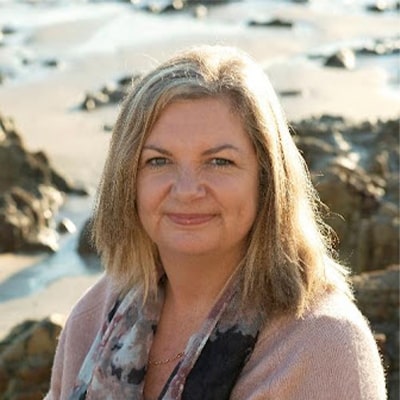
Vice Chairperson
Janine Adams is a distinguished professor at the Nelson Mandela University, South Africa. She is Deputy Director of the Institute for Coastal and Marine Research and holds the Research Chair for Shallow Water Ecosystems, an initiative of the Department of Science and Innovation and the National Research Foundation. Her research investigates how blue carbon habitats (salt marsh, mangroves, seagrasses) respond to climate change, and explores ways to manage harmful algal blooms and improve coastal water quality. Outcomes apply across the science-policy-practice continuum and include actions to restore multiple ecosystem services to estuaries. She leads a team of over 30 researchers and works collaboratively with scientists from Australia, UK, Germany, France, USA, and east Africa. She has published over 200 journal articles, several book chapters, and many technical reports/policies. She is a fellow of the Royal Society of South Africa and in 2015 was awarded the Silver Medal of the Southern African Society of Aquatic Scientists for her innovative research and training of, to date, 40 masters and 24 doctoral students.
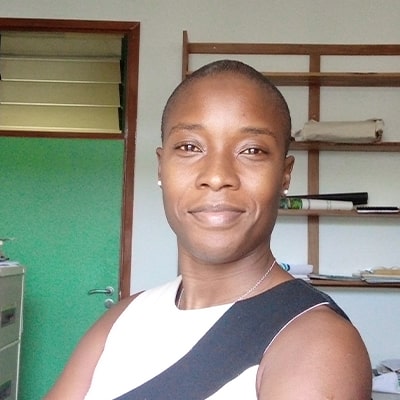
Member
Célia Macamo (PhD in Marine Botany) is a marine biologist, lecturing at the Eduardo Mondlane University in Maputo since 2008. She is currently the Director of the Masters Course on Biology and Ecology of Conservation. Her research interests are in ecology and management of mangrove forests, but also extend to botanic components of other marine and terrestrial ecosystems. She has worked on mangroves ecology, conservation and management, as well as socio-economics, restoration and carbon assessments. She also works in environmental advisory for government and private institutions. She has published part of her work in peer reviewed journals, books, technical and scientific reports, as well as documentaries and scientific meetings. Célia Macamo is the country representative for the Western Indian Ocean Marine Science Association, member of the Mangrove Capital Africa Advisory Group and Focal Point for the Western Indian Ocean Mangrove Network.
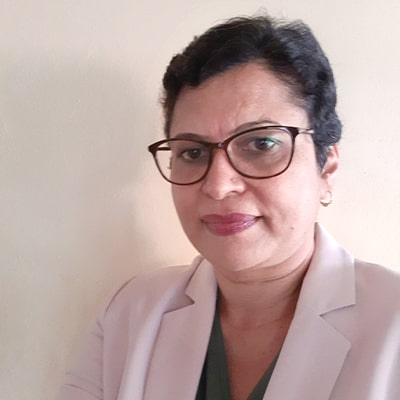
Member
Chandani Appadoo (PhD, Marine Biodiversity and Biology) is Associate Professor and works as an academic at the Department of Biosciences and Ocean Studies Faculty of Science, University of Mauritius. She has 30 years’ experience in teaching and research supervision. Her research interests are in coastal and marine ecosystems especially mangroves, taxonomy of marine crustaceans, fisheries and marine litter. Topics of research in mangroves range from forest structure, fauna, public perception, carbon sequestration and socio-economic importance. She has published widely in many peer-reviewed journals (https://www.researchgate.net/profile/Chandani-Appadoo) and is reviewer for several journals. She has also been lead author for Small Islands chapter for the book- Mangroves of the Western Indian Ocean, status and Management. She is also lead author for the macro-litter and meso-litter monitoring protocols in mangroves for African Marine Litter Monitoring Manual. She is currently country representative for Western Indian Ocean Mangrove Network and also member of Board of Trustees

Treasurer
Célia Macamo (PhD in Marine Botany) is a marine biologist, lecturing at the Eduardo Mondlane University in Maputo since 2008. She is currently the Director of the Masters Course on Biology and Ecology of Conservation. Her research interests are in ecology and management of mangrove forests, but also extend to botanic components of other marine and terrestrial ecosystems. She has worked on mangroves ecology, conservation and management, as well as socio-economics, restoration and carbon assessments. She also works in environmental advisory for government and private institutions. She has published part of her work in peer reviewed journals, books, technical and scientific reports, as well as documentaries and scientific meetings. Célia Macamo is the country representative for the Western Indian Ocean Marine Science Association, member of the Mangrove Capital Africa Advisory Group and Focal Point for the Western Indian Ocean Mangrove Network.

Mauritius Representative
Chandani Appadoo (PhD, Marine Biodiversity and Biology) is Associate Professor and works as an academic at the Department of Biosciences and Ocean Studies Faculty of Science, University of Mauritius. She has 30 years’ experience in teaching and research supervision. Her research interests are in coastal and marine ecosystems especially mangroves, taxonomy of marine crustaceans, fisheries and marine litter. Topics of research in mangroves range from forest structure, fauna, public perception, carbon sequestration and socio-economic importance. She has published widely in many peer-reviewed journals (https://www.researchgate.net/profile/Chandani-Appadoo) and is reviewer for several journals. She has also been lead author for Small Islands chapter for the book- Mangroves of the Western Indian Ocean, status and Management. She is also lead author for the macro-litter and meso-litter monitoring protocols in mangroves for African Marine Litter Monitoring Manual. She is currently country representative for Western Indian Ocean Mangrove Network and also member of Board of Trustees

Mozambique Representative
Célia Macamo (PhD in Marine Botany) is a marine biologist, lecturing at the Eduardo Mondlane University in Maputo since 2008. She is currently the Director of the Masters Course on Biology and Ecology of Conservation. Her research interests are in ecology and management of mangrove forests, but also extend to botanic components of other marine and terrestrial ecosystems. She has worked on mangroves ecology, conservation and management, as well as socio-economics, restoration and carbon assessments. She also works in environmental advisory for government and private institutions. She has published part of her work in peer reviewed journals, books, technical and scientific reports, as well as documentaries and scientific meetings. Célia Macamo is the country representative for the Western Indian Ocean Marine Science Association, member of the Mangrove Capital Africa Advisory Group and Focal Point for the Western Indian Ocean Mangrove Network.
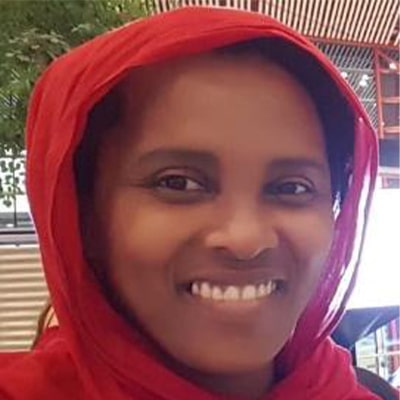
Comoros Representative
Founder of the Comoros National Herbarium and co-founder of the Geomatics Environment Biodiversity consultancy. National consultant and member of the Ecosystemic Accounting of Natural Capital (ENCA) Comoros team. National consultant on the delimitation of terrestrial protected areas. Promoter of the activity “I do my own vegetable garden ” and ‘’urban reforestation’’ in Comoros. Author of the floristic inventory, the vegetation mapping in Ngazidja Island and the study of mangroves in Comoros archipelago.
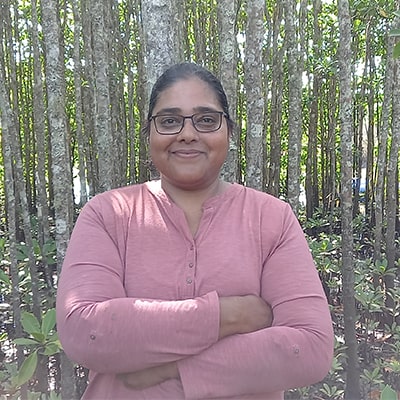
South Africa Representative
Prof. Anusha Rajkaran received her training from the Nelson Mandela University (formerly known as University of Port Elizabeth). She has been trained in the field of Botany and Estuarine Ecology. Her Honours, Masters and PhD focussed on different aspects of mangrove forest ecology; the methods, impacts and patterns of resource utilization of mangrove species in the Eastern Cape region gave rise to her first scientific papers. The PhD thesis entitled: A status assessment of mangrove forests in South Africa and the utilization of mangroves at Mngazana Estuary produced four scientific papers and a book chapter and increased her exposure to scientists in the Western Indian Ocean (WIO), Australia and Belgium. After the completion of her PhD, Anusha was appointed to the Department of Botany at Rhodes University from October 2011 to November 2015. In December of 2015, Anusha joined the Department of Biodiversity and Conservation Biology at the University of the Western Cape. Her research has expanded to the functioning of other estuarine habitats such as salt marsh and seagrass, provision of ecosystem services, establishing baseline estimates of microplastic and chemical pollutants and establishing indicators of health of habitats in South Africa. Her research covers most parts of the South African coastline and the research team includes honours, MSc and PhD students as well as PostDoctoral fellows.
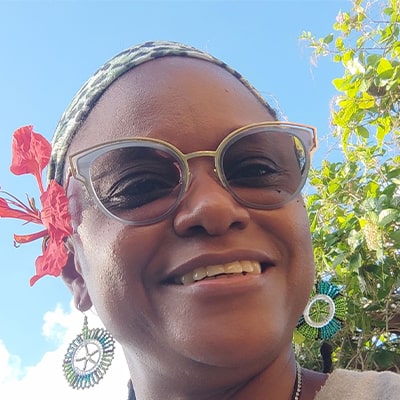
Seychelles Representative
Dr. Henriette is a Conservation Biologist with a passion for nature. She is a Seychellois Docteur du Muséum national d’histoire naturelle in Paris (2011), who specialised in ecology at the ‘Institut d’Écologie et de Gestion de la Biodiversité’ (Conservation des espèces, restauration et suivi des populations; UMR 7204). She also holds a Masters degree from ‘Université de la Réunion’ (2008) and a BSc degree from the University of East Anglia (UK).
She has worked with the World Conservation Monitoring Centre in the UK, and for many years in Seychelles as a conservation biologist and practitioner with the Seychelles Ministry of Environment and later as an independent consultant with private islands, the Seychelles National History Museum and local NGOs. She has worked as coordinator of the Environmental Science BSc degree development at the University of Seychelles. She is also a member of the Reintroduction Specialist Group and a collaborator of the Invasive Species Specialist Group of the Species Survival Commission of IUCN. She has authored or co-authored the book on the management of alien invasive species (2015), a variety of scientific publications, popular articles and technical reports on birds, plants, corals, invasive species and wildlife in general.
Her main interest is research and conservation of the biodiversity of tropical ecosystems with the aim of addressing biodiversity loss through practical measures for the conservation and sustainable use of biodiversity and biological resources, provision of biodiversity information for decision-making, filling gaps in knowledge and contributing to the understanding and appreciation of nature. She has expertise in biodiversity inventories, restoration/rehabilitation of degraded ecosystems including burnt forest lands, mangroves and coastal forests; restoration and population recovery of Endangered island bird populations and restoration of their habitats. Dr. Henriette secondary interest is Conservation Education with the aim of finding ways to communicate science to the people and engaging them in environmental issues to build ecological awareness and an appreciation of their local environment. She also has a general interest in natural history. Her hobbies are: photography and filming, hiking, cycling, gardening and most of all ‘lev kazye’ i.e. recreational fishing using fish traps.
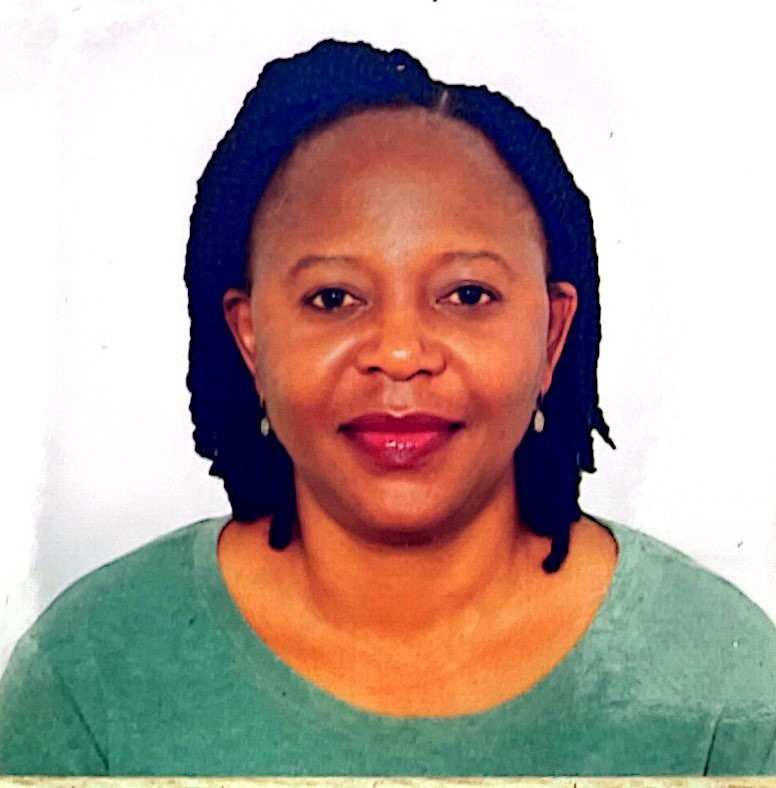
Tanzania (Mainland) Representative
Dr. Rose Sallema Mtui is currently serving as a Manager of Environmental Research at the National Environment Management Council (NEMC) under the Vice President’s Office (VPO), Tanzania. She holds a PhD in Blue Economy from the University of the Western Cape South Africa; and both her M.Sc. and B.Sc. degrees relate to marine science discipline. She has an Advanced Diploma in Aquaculture and Postgraduate Certificate in freshwater biology from Memorial University of Newfoundland in Canada and Institute of Limnology in Austria respectively. Dr. Rose has more than 25 years of experience in the environmental management industry served at NEMC and outside (Institute of Marine Sciences, Zanzibar). In her capacity as a manager, she coordinates environmental research, preparing and managing various national, regional, global projects and programs. Dr. Rose has published a number of articles in several peer reviewed journals including “The Rufiji Estuary mangrove paper”. She has also participated in several shoreline changes associated with development projects and anthropogenic activities in Tanzania and in the region.

Somalia Representative
Mr. Mohamud Hassan Ali holds an Advanced Diploma in Fishery Management and BSc in Fisheries and Coastal Management. He is the Head of Section of Marine Biodiversity Conservation at the Ministry of Fisheries and Blue Economy of Federal Republic of Somalia, with vested practical experience and skills in small scale fisheries assessment, management and stakeholders’ engagement. He also has some practical skills in marine megafaunal assessment and monitoring. He is the founder of a local NGO known as SIFO FISH ORGANIZATION based Southern Somalia, from where he has drawn interest on mangrove conservation and management, which gave him credit to serve as the Western Indian Ocean Mangrove Network Country Representative for Somalia.
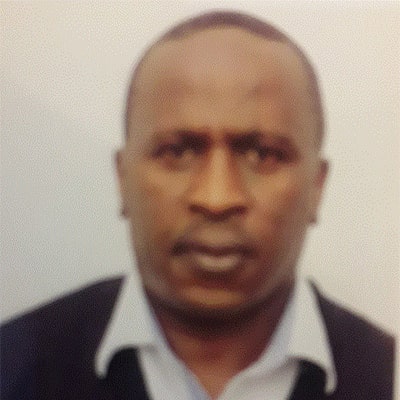
Kenya Representative
I am a Lecturer with research interests at the Department of natural resources at Egerton University Kenya. I have 20 years of experience in terrestrial and inter-tidal forest research, mangrove tree carbon measurements (stocks and fluxes), using earth observation data to monitor changes in coastal ecosystems, mangrove biodiversity and ecosystem services monitoring skills, higher education teaching and mentoring in aquatic ecology. I also possess excellent data analysis, communication and reporting skills to diverse scientific and non- scientific audiences. My other skills include; ability to organize, plan and direct programs. I am self-motivated, with ability to handle multiple tasks, ability to work under pressure and a team player.
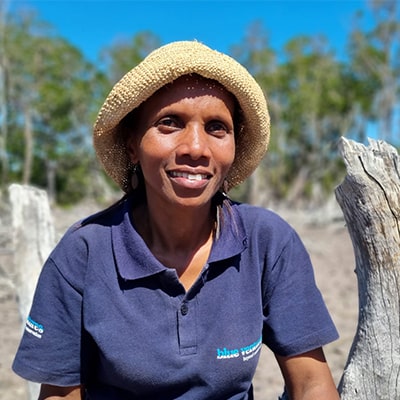
Madagascar Representative
Lalao Aigrette (PhD in Marine Biology) works at Bondy International as the Director of the Blue Economy department Her deep commitment to conservation has earned her the recognition as an IUCN Natural-born Heroine for her exceptional work in Madagascar. With over two decades of experience collaborating with local coastal communities, Lalao has been a driving force in advocating for nature and human rights-based approaches to the sustainable management of mangrove forests — a vital yet vulnerable ecosystem. One of her most significant achievements is the successful validation of Madagascar’s first community-led mangrove carbon conservation and sequestration project, which came to fruition after years of grassroots efforts. As a fellow of the Women for the Environment in Africa program, Lalao is dedicated to enhancing women’s participation and empowerment in community conservation, reflecting their crucial socio-economic roles within their communities.
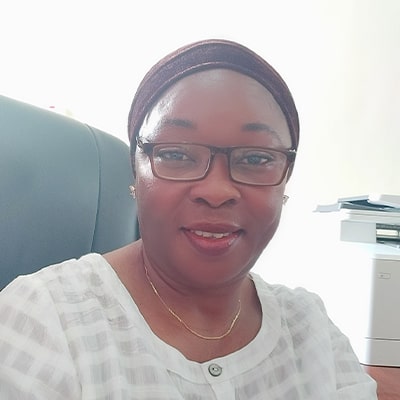
Coordinator of Socio-economics & Governance
Dr Mwanahija Salehe Shalli is a Senior Lecturer at the Institute of Marine Sciences of the University of Dar es Salaam, based in Zanzibar. She holds a PhD in Aquatic Sciences, and MSc in Management of Natural Resources for Sustainable Agriculture. Dr. Shalli is working on diverse research area related to coastal and marine resources management and Socioeconomics. Her research interests include; Coastal and Marine Socioeconomics; Coastal livelihoods; Natural Resource Governance; Traditional Knowledge of Coastal and Marine Resources; Community-based Conservation, and Social issues of Climate Change. Dr. Shalli teaches undergraduate and postgraduate students on Socio-economic Aspects of Coastal and Marine Resources, Sustainable Utilization of Coastal and Marine Resources, and Economics and Valuation of Coastal and Marine Ecosystems. Dr. Shalli is an active member of the Western Indian Ocean Mangrove Network (WIOMN), Western Indian Ocean Marine Science Association (WIOMSA) and Women in Marine Science (WiMS).
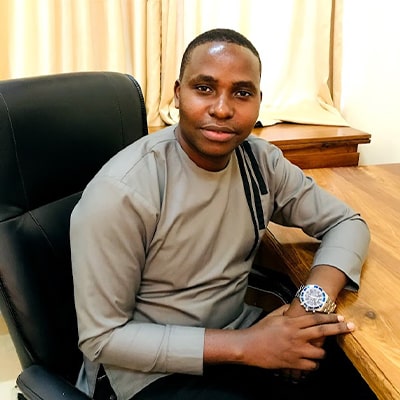
Coordinator of Ecosystems and Habitats
Dr Rashid Omari Ismail is working at the Institute of Marine Sciences (IMS), University of Dar es Salaam as Lecturer. He has sixteen years of expertise in the field of marine sciences. He graduated from the University of Dar es Salaam with a Bachelor’s degree in Aquatic Environmental Sciences and Conservation. He is holding MSc. in Botany from the University of Dar es Salaam and PhD in Plant physiology from Stockholm University. He has a wide experience of research in marine science, majoring in Seagrass Physiology and Ecology, Mangroves Physiology and Ecology, Blue carbon research, Sea-Landscape Ecology, Climate change, Ocean acidification and Coastal Ecosystems connectivity. He worked with UNEP/GEF Blue Forest and IUCN projects aimed to assess the effects of mangroves degradation on carbon storage and blue carbon stocks in the WIO region respectively. Since coastal ecosystems particularly seagrass and mangroves are critical for blue carbon storage and human livelihood, and are under severe threat from anthropogenic activities, his current research focuses on how to conserve mangrove and seagrass ecosystems while guaranteeing sustainable livelihoods. Dr Ismail is an active member of the Western Indian Ocean Mangrove Network (WIOMN), Western Indian Ocean Marine Science Association (WIOMSA) and Western Indian Ocean Early Career Scientists Network (WIOECSN).
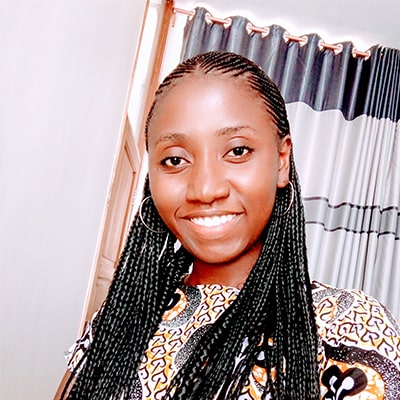
Operations Assistant – administrative and logistics
Ms Loyce Ntibona is young researcher in the field of Marine sciences. She holds a MSc. in Marine Sciences, and BSc. in Aquatic Sciences and Fisheries. Her areas of research include Coastal livelihoods, Coastal and Marine Socioeconomics, Natural resources governance, and Community based Conservation and Management. Ms. Loyce is an active member of the Western Indian Ocean Mangrove Network (WIOMN), Western Indian Ocean Marine Sciences Association (WIOMSA) and Western Indian Ocean Early Career Scientists Network (WIOECSN).
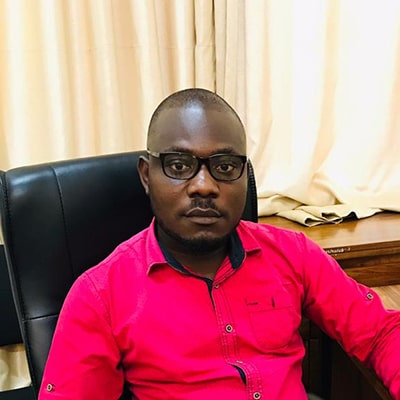
Operations Assistant – Communications and Advocacy
Mr. Alex Rubekie Peter is an Assistant Lecturer at the Institute of Marine Sciences of the University of Dar es Salaam based in Zanzibar, Tanzania. He did his Bachelor degree in Aquatic Environmental Sciences and Conservation and Master of Science in Climate Change and Sustainable Development at the University of Dar es Salaam. At the institute, Mr. Peter teaches courses on Climate change and variability, Marine phytoplankton and primary production as well as Biostatistics for marine scientists. Before joining the current position, Mr. Peter was a registered Technical Fisheries Tutor at Fisheries Education and Training Agency conducting training both long and short courses on Fish processing, Fish Handling, Fish Quality Assurance, Fisheries Management, Aquatic Biology, Aquaculture and Environment, Safety at Sea, Environmental Education as well as Dynamics of Aqua-Environment and Aquaculture.
Mr. Peter is interested in conducting research in the area of Natural resources economics, indigenous knowledge in weather and climate forecasts for adaptation, coastal and marine ecology, climate change impacts and vulnerability assessment, climate change mitigation, natural resources governance as well as socio-economic and ecological systems of marine environment. He has also attended training on climate change modelling and ecological monitoring at the University of Dar es Salaam funded by the Association for Africa University in Ghana (AAU) and a Germany agency DAAD. Mr. Peter is an expert of data management and analysis using various programing languages including R-programming, Python, STATA, SPSS. He is also an active member of the Western Indian Ocean Mangrove Network (WIOMN), Western Indian Ocean Marine Science Association (WIOMSA), Western Indian Ocean Early Career Scientists Network (WIOECSN) and International Biometric Society – Tanzania (IBS-Tanzania).
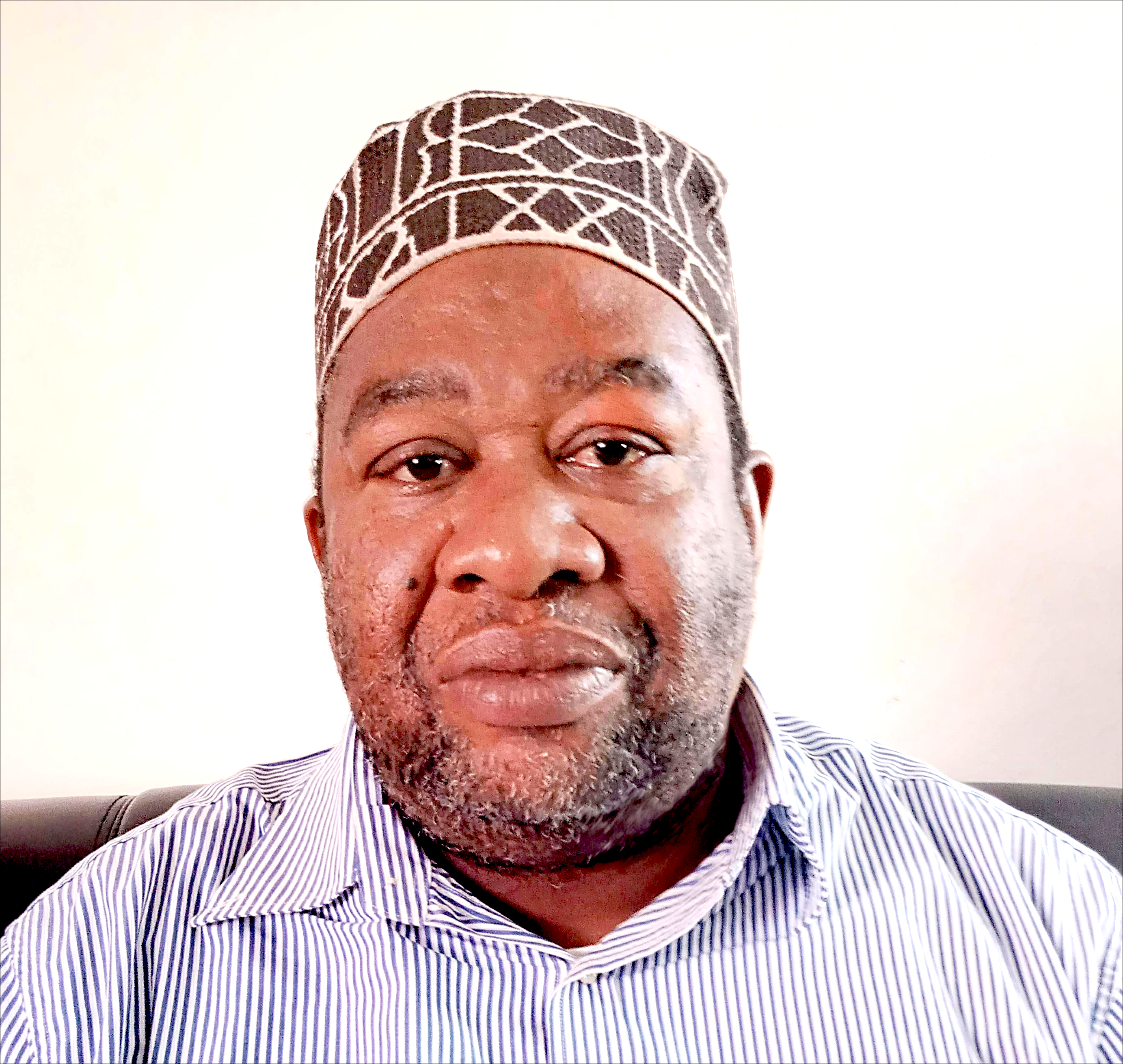
Assistant Accounts Officer
Mr. Ramadhan Zubeir Hamad is a Senior Accounts Officer at the Institute of Marine Sciences, University of Dar es Salaam, based in Zanzibar. He holds an Advanced Diploma in Accountancy. Mr. Hamad is responsible for all accounting and banking transactions related to the Institute. Additionally, he serves as the Assistant Accountant for the Western Indian Ocean Mangrove Network (WIOMN).
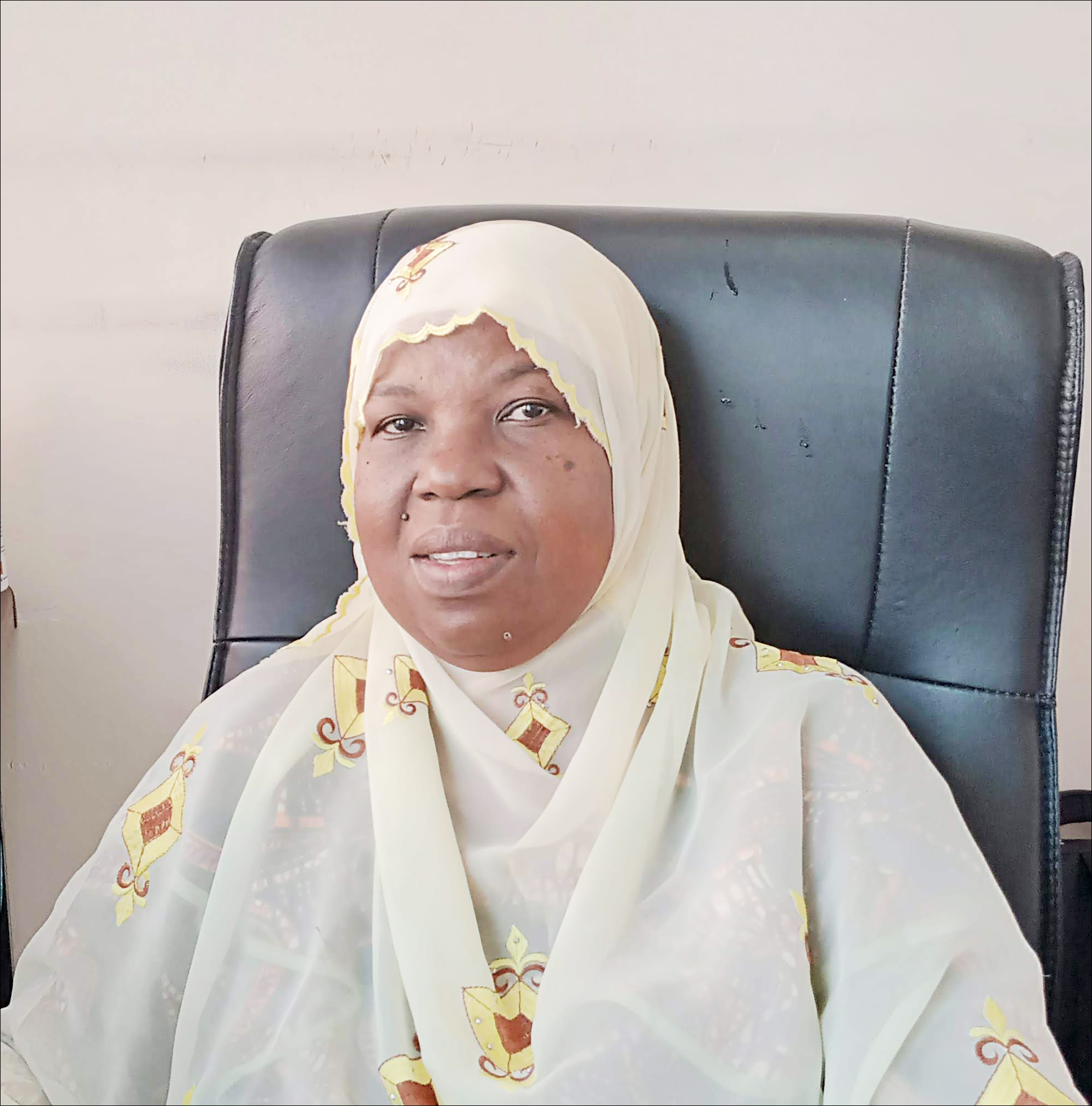
Finance and Administrative Officer
Ms. Asha Soud Sabour is a Tanzanian finance professional with extensive experience in accounting and financial management. She holds a Master of Science in Finance from the University of Strathclyde, a Postgraduate Diploma in Financial Management, and an Advanced Diploma in Accountancy, all of which complement her Certified Public Accountant (CPA) qualification. Her education was grounded in institutions like the Institute of Finance Management (IFM) in Tanzania, where she also completed her secondary education at Fidel Castro Secondary School and Shamiani Secondary School.
Asha has built a robust career across various institutions, primarily within academia. She began her career as an accountant at Supper Doll Trailer Manufacturing Co. Ltd before advancing to senior roles at Zanzibar University, where she served as Chief Accountant and Internal Auditor, along with teaching responsibilities. Her expertise in financial oversight continued at the University of Dar es Salaam, where she worked in different capacities including Senior Accountant and Principal Accountant at the Institute of Marine Sciences and the Institute of Resource Assessment. Her responsibilities have included managing entire accounts departments, preparing financial statements, controlling project funds, and ensuring compliance with financial regulations. Beyond her primary roles, Asha has also been involved in other significant projects, such as serving as the Finance and Administrative Officer for the Western Indian Ocean Mangrove Network in Zanzibar. In this role, she managed accounts, prepared financial statements, and controlled project funds. Her long-standing commitment to financial management in educational and environmental sectors highlights her expertise and dedication to her profession.